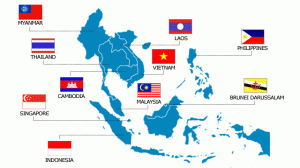Comment: As a former student of public policy for my MA at the University of Hawaii, I am impressed by the comments made by Gregory and Alexandra in addressing some thorny issues Cambodia must accomplish as a chairman of ASEAN this year. Both authors argued that Cambodia failed shamefully on its mission to be neutral in previous meeting of Asian Ministerial Meeting (AMM) in July in addressing the dispute of South China Sea. Both authors suggested Cambodia to correct its policy framework and bring back fame to ASEAN in this upcoming East Asian Summit (EAS) this November. The authors shed light on Cambodia’s inclining dependency towards China rather than balance its policy between both powerful countries such as China and the USA. They stated that “the next few years could prove a watershed for ASEAN in its quest for centrality in regional architecture.”
However, I see that both authors don’t pay attention on internal issues which are crucial particle and concrete foundation as a host or chairmanship, Cambodia must ensure that she has willfully endorsed the democratic principles and tightly held an open-minded domestic political profession. If Cambodia couldn’t ensure that journalist Mom Sonando must be freed from jail and alter other accusations government rendered towards him, the government will have a roadblock within its feet. If Cambodia couldn’t ensure that key opposition leader, Sam Rainsy, can exercise his political rights and safely return back to Cambodia to exercise his presidency as the National Rescue Party (NRP) before next year national election, Cambodian government will have a roadblock within its feet. These two visible things and the chairmanship role model two authors addressed potentially deviates Cambodia’s collective success as an ASEAN chairman in this upcoming November of EAS.
PacNet #68 Thursday, Nov. 1, 2012
Cambodia’s EAS Carrot: Incentives for a Successful Summit by Gregory Poling and Alexandra Sander
Gregory Poling (gpoling@csis.org) is research associate with the Chair for Southeast Asia Studies at the Center for Strategic and International Studies in Washington, D.C. Alexandra Sander (asander@csis.org) is a researcher with the Chair for Southeast Asia Studies.
Cambodia will fulfill its last major obligation as this year’s ASEAN chair November 18-20 when it hosts the annual ASEAN Summit and seventh East Asia Summit (EAS). The EAS in particular will provide Cambodia with the opportunity to restore some of its credibility after the public embarrassment of the ASEAN Ministerial Meeting (AMM) in July. On that occasion, Cambodia used its prerogative as ASEAN chair to block the inclusion of any mention of the South China Sea maritime disputes in the joint communiqué at the end of the meeting, resulting in the organization’s first-ever failure to release such a document.
That failure cast significant doubt on ASEAN’s ability to evolve and tackle tough issues. It also caused troubling allegations, especially from Vietnam and the Philippines, that Cambodia had placed its close relationship with China above the interests of its fellow ASEAN members. All the damage wrought in July will not be fixed in three days in November. But if the EAS goes demonstrably better than the AMM did, Cambodia’s image will have a chance to recover and some of the ASEAN skeptics will be quieted. A successful EAS, and by extension a stronger regional framework in the Asia Pacific, is in the interests of all EAS members, including the United States. The key will be supporting Cambodia as an effective chair.

